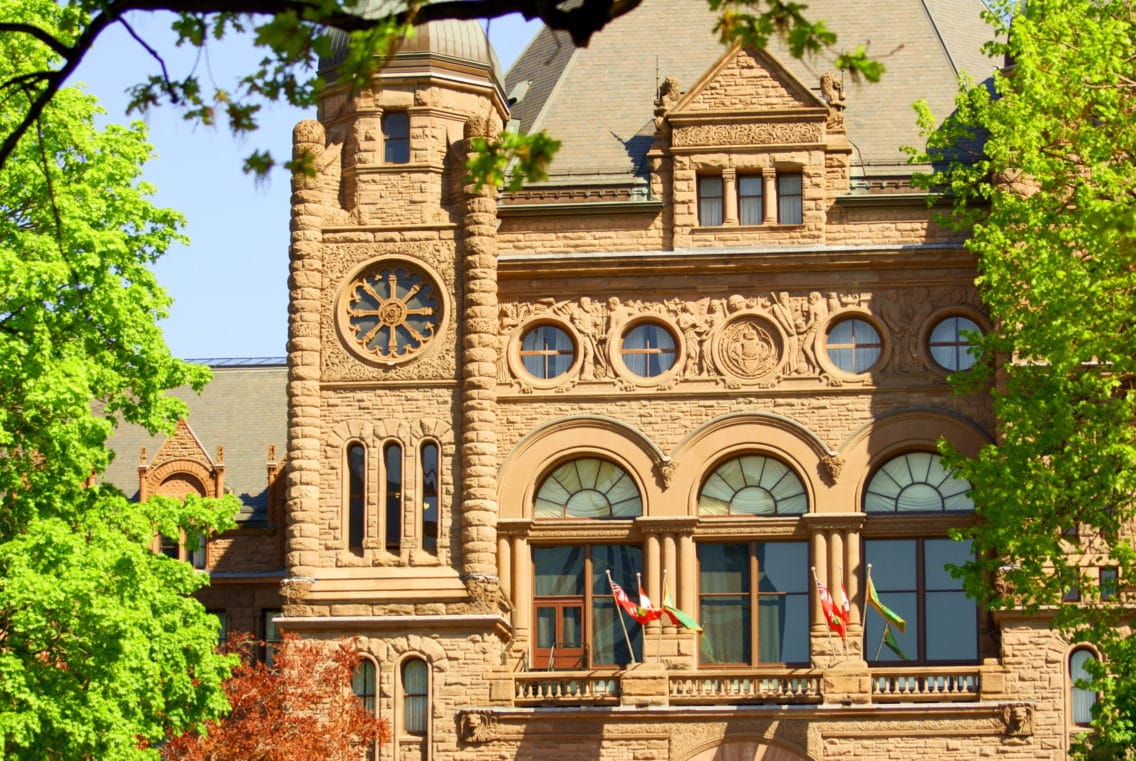Today, environmental groups applauded a proposed new law that would allow Ontario citizens to speak out to protect the environment and their health without fear of damaging lawsuits meant to intimidate them.
Yasir Naqvi, Member of Provincial Parliament for Ottawa Centre, today tabled a private member’s bill – the Protection of Public Participation Act – that targets Strategic Lawsuits Against Public Participation (SLAPPs). SLAPPs are civil suits of dubious merit, generally intended to censor, intimidate or silence critics and prevent individuals from voicing concerns about public interest issues. Often in the form of defamation suits, they stifle citizen participation in public decision-making.
“These suits impede public participation in the democratic process and expose SLAPP victims to unnecessary financial and emotional costs,” said Hugh Wilkins, staff lawyer with Ecojustice. “Ontario is stronger when its citizens can exercise their right to clean land, air and water without fear of a SLAPP.”
These types of lawsuits have been used when citizens report environmental violations, file complaints with government agencies, work to educate the public about an issue, or speak at a public meeting. In 2010, the Attorney General convened an expert advisory panel that strongly recommended the enactment of anti-SLAPP legislation. The bill tabled today adopts the recommendations of that panel, which include a faster process for dismissing SLAPPs, strong disincentives for initiating them, and guidelines for judges on how to address them.
The Environmental Commissioner of Ontario, the Association of Municipalities of Ontario and Ontario Bar Association have all called for anti-SLAPP legislation.
“When a company sues an organization or individual in order to intimidate them, we all lose. Ontario needs people unafraid to advocate for a healthier and more vibrant society,” said Shane Moffatt, a campaigner with Greenpeace Canada.
“Lawsuits without merit that are meant to bully people from exercising their rights must be stopped,” said Maude Barlow, National Chairperson of the Council of Canadians. “There is no place for that type of conduct in our society.”
SLAPPs are on the rise in Ontario. An example was the almost $150 million in lawsuits filed against multiple opponents of the Big Bay Point mega-marina, in Innisfil, on Lake Simcoe. All the suits were either dropped or dismissed by the courts for inactivity, with costs against the developer.
“Ontario residents’ rights under the Environmental Bill of Rights are violated every time a SLAPP chills a fair and open environmental decision-making process,” said David Donnelly, counsel to Environmental Defence. “Many jurisdictions in North America have banned SLAPPs after having to put up with frivolous cases that never reached a judge or jury,” Donnelly added.
“Anti-SLAPP legislation will save costs for the justice system by ensuring the early dismissal of these meritless lawsuits,” said Ramani Nadarajah of the Canadian Environmental Law Association (CELA). “The private member’s bill will protect citizens and groups who are engaging in public debate and is vital to Ontario’s democracy.”

